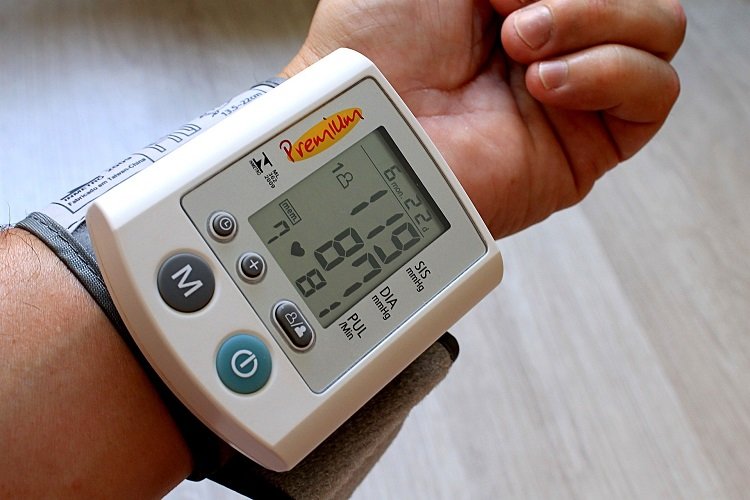Heart attack is the leading cause of death worldwide. More people die each year from cardiovascular diseases than from any other cause.
While some risk factors are outside our control (like genetics), by mitigating controllable risk factors, you can lower the risk of cardiovascular problems and heart attack to a great extent. Lowering risk factors and regular heart risk screening is considered very important for every individual aged 35 and above.
Screening makes precise cardiovascular health risk assessment that helps cardiologists recommend the necessary preventive measures for their patients who are at high risk.
We’ll start by listing risk factors and then discuss different screening tests available to evaluate your cardiovascular risks.
Risk Factors
Here are the main risk factors for cardiovascular diseases:
Age: elderly people have a higher risk of developing cardiovascular diseases as simply getting older enhances one’s risk of narrowed and hypokinetic arteries.
Sex: men are at higher risk of cardiovascular diseases. However, the risk of a heart attack increases by manifolds once women reach menopause.
Obesity: while excess weight usually triggers other risk factors like high blood pressure and diabetes, it’s a risk factor for fatal heart attacks in its own right as an inflammatory condition.

High Blood Pressure: uncontrolled high BP causes the arteries carrying blood to your heart to harden and thicken, thereby narrowing over time.
High Blood Cholesterol: high levels of cholesterol in your blood can develop fatty deposits in your blood vessels. It is one of the major causes of cardiovascular diseases, with the low level of HDL and/or high level of LDL the main culprits for atherosclerosis.
Diabetes: diabetes (both type 1 and type 2) is strongly linked to an increased risk of CAD and other cardiovascular events.
Sedentary Lifestyle: unhealthy diet, smoking, drinking, physical inactivity, lack of regular exercises etc. also increase one’s chance of heart problems.
Stress: chronic stress increases blood pressure and causes artery inflammation, which are responsible for heart attack and heart-related issues.
Family History: if anyone in your family suffered heart attack at an early age (before the age of 55 in men or the age of 65 in women), it increases your chance of cardiovascular problems.
Cardiovascular Risk Assessment
Regular heart screening is suggested for every individual with or without any symptom of cardiovascular disease to evaluate the risk factors. The commonest tests, which are performed for cardiovascular health risk assessment, are as follows:
Lipid-Profile Test: this test is done to measure the level of total cholesterol, LDL, HDL and triglycerides in your blood. As high level of LDL cholesterol (normal is 100mg/dL)and triglycerides (150 milligrams per deciliter (mg/dL)) as well as low level of HDL cholesterol (less than 40mg/dL) increase the risk of heart attack, therefore, it is really important to undergo the lipid-profile test to know and assess your risk factor. The cardiologists usually suggest the test twice a year.
Sugar Test: blood sugar test is of two types – fasting and PP. Fasting blood sugar level must be less than 100 mg/dL (5.6 mmol/L) and PP should be from 100 to 125 mg/dL (5.6 to 6.9 mmol/L). As high blood sugar is linked to cardiovascular diseases, kidney malfunctioning and several other problems, you should make sure that your blood sugar level always remains normal. You should get your sugar level checked twice a year. However, if you have abnormal sugar level, it should be checked every three months.
Blood Pressure: regular blood pressure monitoring is important to lower your risk of heart problems. Normal blood pressure is 120/80 mm.
High-Sensitivity C-Reactive Protein Test: this test is commonly referred to as hs-crp. This test is done to measure the amount of C-reactive protein in your blood. If the protein is present in higher amount in your blood, it is a strong indication of swelling or inflammation in the body.
If the initial screening reports show high risk factors for heart diseases, your cardiologist may suggest some additional tests as follows:
Electrocardiography (ECG or EKG): it measures the electrical activity of your heart and shows information about heart rhythm and rate. The test also reveals information about blockage in coronary arteries.
Exercise Electrocardiogram: the test requires you to pedal a stationary bike or walk on a treadmill at continuously increasing levels of difficulty while the doctor monitors blood pressure, the electrical activity of the heart and heart rate and rhythm to figure out if the heart is receiving adequate supply of blood flow in a stressed condition.
Echocardiography: The test involves using ultrasound to produce moving pictures of your heart.

Even if your test reports are fine, it is important to avoid unhealthy diet, drinking and smoking. Also do yoga, and meditation to keep stress away. Physical fitness is essential for good health of your heart. Stay physically active, increase your fruit and protein intake and keep your weight under control. That is the mantra to live with a healthy and happy heart.

